#Life
Why Fathers Matter
Published

بسم الله الرحمن الرحيم
The Prophet (ﷺ) never saw his father, and still developed into the paragon of human excellence. How many Ṣaḥāba were orphans due to their fathers being martyred? Weren’t greats like al-Ḥasan al-Baṣri, Abu Yūsuf al-Qāḍi, Imam ash-Shāfi’i, Imam Aḥmad b. Ḥanbal, Imam al-Bukhāri, all orphans? None of these were hindered by the absence of their fathers. So do fathers even matter?
Obviously they do (we will revisit exceptional orphans later), but pinpointing why can be quite difficult, considering the politically charged nature of this subject and the emotion it provokes. After all, the significance of fathers extends from the “significance of men” discussion, and that is not the most popular, progressive, woke subject in today’s world. However, the bottom line is that there is no utility or relevance for men unless there is something unique about them. There must be a difference between men and women, and by extension between fathers and mothers. Otherwise, a father is essentially disposable; you might as well have a single mother, or two mothers. It would not matter.
Keep supporting MuslimMatters for the sake of Allah
Alhamdulillah, we're at over 850 supporters. Help us get to 900 supporters this month. All it takes is a small gift from a reader like you to keep us going, for just $2 / month.
The Prophet (SAW) has taught us the best of deeds are those that done consistently, even if they are small. Click here to support MuslimMatters with a monthly donation of $2 per month. Set it and collect blessings from Allah (swt) for the khayr you're supporting without thinking about it.
Unfortunately, this is the fatherlessness experiment many are conducting right now, wherein many fathers are reduced to biological contributors or at best uninvolved financiers. According to the Pew Research Center, the 2-parent household is facing rapid decline in the U.S., the double-mom parenting model is demanding acceptance, and children outside of wedlock have reach 1/3rd of all births since the year 2000.
How detrimental is this? Many studies suggest that the consequences of fatherlessness have reached epidemic proportions, and that so many developmental crises in children and adolescents are directly linked with fatherlessness. To name a few:
- 80% of adolescents in psychiatric institutes stem from fatherless homes
- 90% of all runaway and homeless children were from fatherless homes
- People are 2x as likely to commit suicide (especially boys) after a fatherless childhood
- Children are 9x more likely to be sexually abused (especially girls) in a home without the biological father present
For a Muslim, these alarming numbers are telling you what you already know, because the Creator spared you of being dependent on extensive surveys, statistics, and their margin of error. A Muslim is informed that though all are equal before God in terms of salvation and human dignity, there remain differences between men and women when it comes to certain sectors of the social realm; “And the male is not like the female.” [3:36] Ignore these nuanced differences, and you will create new problems while trying to solve the current ones. The Quran also calls our attention to God’s cosmic patterns, and the dynamic interplay between opposites in His universe; “By the night as it covers, and by the day as it brightens, and by the spectacle creation of the male and the female; your strivings are immensely diverse.” [92:1-4] In other words, the complementary existence of night and day, male and female, good and evil, are all necessary components of balance in the universe. Applying this to parenting: just as fathers can never fully offer their children what mothers can, mother can never fully offer their children what fathers can.
Nowadays, however, such elemental truths are challenged under the influence of modern secular thought, where the “open mind” and “objective human intellect” are accepted by many as the ultimate authority for governing people’s ideas and lifestyles. Embracing human intellect is not wrong, so long as its limitations and biases are recognized. Consider the gender debate, for instance; it will be “thought-out” by either a man or a woman, making non-bias impossible since the disputing parties are the judges. Is it coincidence that most men are biased pro-men and most women are biased pro-women? In Muslim circles, how many women scream injustice when hearing the “your mother 3x” hadith? How many men scream injustice when hearing the “husband’s leadership” hadiths? When a contention to these texts arises, it is always from the “opponent’s corner,” whose bias generates a misperception of injustice in that flawless sacred text. Even those who nobly try to escape their biases, they usually stumble into the opposite bias. Their greater focus on their inherent bias generates a pendulum effect heading for the opposite extreme. Consider, for instance, how some valiant women while trying to escape the pro-woman bias are usually found hastily dismissive of the very legitimate grievances feminists sometimes have. Case in point: only Allah can assess fairly, with full wisdom and neutrality, and not the human intellect, for only Allah transcends all biases. “Transcendent is He who created all the pairs; of what the earth sprouts, and of your own selves, and of things you do not know.” [36:42]
Add to the bias of your predisposed sex that of cultural conditioning. Our strongest notions of acceptance and rejection were not developed in a vacuum. Take our perception of fatherhood, for instance; it was not constructed in isolation of the foolish sitcom dads we grew up watching. Homer Simpson is a certified buffoon. Family Guy is a lowlife. In Everybody Loves Raymond, he evades all duties to play golf. In Stranger Things, the Wheeler’s dad is oblivious to who lives under his roof. In the Fresh Prince of Bel-Air, Will’s father returns only to traumatize his son one last time.
This narrative has even crafted men’s perception of themselves, for art and literature have always been prescriptive of a culture and not just descriptive of it. Some men have internalized this narrative, becoming the runaway and video-game dads. Many others have rebelled against it, deciding that if society does not appreciate them, and has already written them all off as loser husbands and deadbeats dads, then to hell with husbandry and fatherhood. “I can fulfill my hormonal needs without the commitment of marriage and family, and dinner and a motel are far less costly anyway,” he tells himself. And though women suffer far more from the delayed marriage phenomenon than men (female infertility far precedes male infertility), the vicious downward spiral ultimately spares nobody.
Therefore, only by agreeing on an external reference point – conceding to God’s wisdom and submitting to God’s authority (Islam) – can we escape this chaos. “Does He not know what He created, and He is al-Lateef (the Most Subtle) al-Khabeer (the Best Acquainted)?” [67:14] With Allah’s guidance, the role confusion and identity crisis which becomes a family crisis is prevented. Man and woman are different, and so it is not about who can outdo the other in the same task, but who can fulfill their God-ordained duties in a superior way. Also, since this world is a finite realm, it naturally lends itself to greed and the dog-eat-dog mentality. But when reorienting our pursuits for God’s mercy which is infinite, there becomes plenty for every seeker. Only then is there no petty bickering and power struggles between the rich and poor, strong and weak, man and woman.
So again, just as fathers can never fully offer their children what mothers can, mothers can never fully offer their children what fathers can. As for those who grew up orphans or with negligent parents, Allah may intervene in ways that compensate, like He did with our Prophet (ﷺ), for only Allah is truly irreplaceable. But destiny is what we believe in, while the Shariah is what we determine our conduct by. Those who ignore the Sacred Shariah should not expect destiny to rescue them. Obey the laws of His universe, surrender to its King, or invite so much suffering into your life and that of your children.
What Do Fathers Uniquely Offer?
What benefits does a child receive from his/her relationship with dad that are notably different from those derived from their relationship with mom?
- Paternal Authority. In a well-functioning family, the very presence of the father embodies authority and discipline, and it is conveyed simply by his daily involvement in family life.
The dominant role of fathers in preventing misconduct and even psychopathology is well-established. Over fifty years ago, this phenomenon was highlighted in the classic studies on the causes of delinquency by Sheldon and Eleanor Glueck of Harvard University. They described in academic terms what many children hear their mothers so often say: “Wait till your father gets home!” Fathers are needed to provide that paternal authority and discipline, or else mom will have to choose between being primarily an enforcer or primarily a loving nurturer, when the kid requires both. We must accept that each parent has a primary role, even if they will inevitably wear the other hat on lesser occasions.
A major challenge in the face of capitalizing on paternal authority is that our children are a reflection of us, and so they must first see their mother respecting dad’s authority. Otherwise, the kids will begin to use mom to undermine dad, and then dad will eventually gravitate away from family involvement due to alienation or simply to avoid conflict. Outcome: paternal authority is lost and the children suffer for a lifetime.
I know “men’s authority over women” is a trigger-word for many, so let me clarify and qualify:
- Allah designated this, not men. Allah who transcends gender and is never biased. What is the wisdom behind this? Perhaps men have a greater capacity for leadership, perhaps women have a greater capacity for humility; likely both and more. However, there is a huge difference between exploring the wisdom and objecting to God.
- Authority here does not mean a powerless sex-slave who is not allowed to have an opinion. It does not even mean a parent-child dynamic, nor that mom is a robotic arm for dad’s micromanagement at home (will address men’s abuse of authority later). In Islam, absolute authority belongs only to God, but for the sake of social order, God placed some in authority over others and demands compliance for the collective good. Thus, the Prophet (ﷺ) said, “Every one of you is a shepherd and is questioned about his flock. The leader of people is a guardian and is questioned about his subjects. A man is the guardian of his family and is questioned about them. A woman is the guardian of her husband’s home and his children and she is questioned about them.” [Bukhārī 6719, Muslim 1829] Some may argue that shepherd only means responsibility, not leadership. It certainly does mean responsibility, but responsibility cannot be separated from authority. Where is the justice in a person being responsible for something they have no degree of control over?
- No joint-enterprise can ever work without authority, or else the arguments will never end, decisions will never be made, and there would be utter stagnation. Can you imagine presidential debates not ending with elections, but rather until one of the two parties convinces the other? For that reason, Allah placed a mechanism wherein authority / ultimate responsibility rests in someone’s hands. Allah designated that it be the husband, and that he gets interrogated for it. Also, remember that Islam teaches fleeing from leadership, and that those competing for it are least qualified for it. But when it is imposed upon you, do not dare fumble it, for your questioning is not like anyone else’s.
- Some may argue that men cannot be trusted with authority, since most are drunk with power. There is some truth to this, but you might as well say they cannot be trusted with money either, since most rich men are corrupt. In fact, one may even claim that men cannot be trusted with women, since most battery cases are men against women and not women against men. See where this is going? In reality, the problem is not in the presence of authority, but the absence of the greatest safeguard against human transgression and the abuse of authority: the fear of God and the cultivation of conscience. I must admit that this can be scarce in an age when Islam is largely a mere a cultural identity for many, and thus our mothers, sisters, and daughters are oppressed in many Muslim homes before our very eyes. However, whenever and wherever Islam is embraced holistically, we find shining examples that embodied “the best of you are those best to their wives.” [Sunan at-Tirmdihi]
Be certain that if a child does not experience a clear power structure at home that must be conformed to, it is so much harder for those children to grasp even God’s authority in their lives. Why? They were not accustomed to feeling that they must answer for things in life, and restrain themselves from things to avoid unwanted consequences. Consider that 85% of youth in prison had fatherless homes, and 71% of high school dropouts stem from fatherless homes. [See: Infographic] These kids desperately needed someone to instill in them frustration tolerance, and accustom them to hearing a non-negotiable “no” at times. This is a priceless developmental contribution, and none can effectively provide it like the father figure.
- Paternal Affection. These indispensable expressions of warmth enhance a father’s ability to fulfill his primary role; they offer a constant non-verbal reassurance that dad is not disciplining because he hates me. Paternal affection also has intrinsic benefit for a child, since kids thirst for different kinds of loving care; paternal and maternal. Absentee fathers create an emotional void that leaves youngsters particularly vulnerable. It should be no riddle why 2/3rd of teen pregnancies happen among girls from fatherless homes, girls who sought masculine protective love, while the wolves hunted her for other aims. In boys, their initiation into manhood is obstructed if they feel inadequate and unaccepted around their fathers. To compensate, they are found turning to sports, gangs, and gaming, seeking through them transcendence into something bigger than boyhood.
- Financial Security. Without the father’s presence, children have a 40% chance of growing up in poverty. But have the 60% who escaped poverty survived the tragedy? Far from it, for a sizable portion of financially secure fatherless homes still suffer from emotional hunger. After realizing just how consequential paternal affection is, one can only imagine how much more of a necessity a mother’s mercy and unparalleled compassion can be for a child. Now calculate what securing the finances (escaping the 40%) costed that child when mom’s presence is usually sacrificed for it (in addition to dad already being absent). Should it still then surprise us to hear that 69% of suicide deaths were from fatherless homes?
For this reason, I am just staggered by the whole role-reversal debate. Do people not see what emotional wrecks their kids would be if she worked all day while dad stayed home with the kids? As some Muslim scholars explained, God created the mother *generally* having a greater capacity for mercy, and the father *generally* having a greater capacity for justice, and hence each is tasked accordingly. Or as Dr. Jordan Peterson frequently puts it, even if from an evolutionary-survivalist paradigm, studies consistently show that women are far more agreeable (able to sacrifice self for child) while men are far more conscientious (task-oriented, industrious). The point here is not that women should never work, but that they should never feel their work at home is inferior, or that the father can substitute just as well.
Where Do Men Need to Man Up?
- Revisiting Authority. Men must own the task of trimming their own feathers and dieting their own egos. Allah entrusted you with this leadership, to invoke it for the betterment of the family, not for selfish interests. Even if your heart may be in the right place, people rebel without breathing room and under excessive constraints. Remember that the same man (ﷺ) who deemed you head of the family showed us that this is a duty to serve and protect. Would he (ﷺ) not milk for himself, and stitch for himself, whenever he could? Would he (ﷺ) not outdo everyone in forgiving infringement on his rights, and outdo everyone in restraining anger? Would he (ﷺ) not simply say “Then I’m fasting,” [Ṣaḥīḥ Muslim] when food was not available in the house?
Leaders complain least and get served last. Leaders lead by example. What made people accept Umar 
- Valuing Affection. Allah made receiving His mercy contingent upon having mercy on people at large, and youngsters in particular, for obvious reasons. Withholding expressions of love and affection from the kids, or leaving this to the mother alone, is devastating and merciless. When al-Aqra‘ b. Ḥābis (rA) witnessed the Prophet (ﷺ) kissing his grandson, he boasted of never kissing any of this ten sons, to which the Prophet (ﷺ) said, “What can I possibly offer you if Allah has pulled the mercy from your heart?” [Ṣaḥīḥ al-Bukhāri] It is sad to see that in the United States alone, 20 million kids have no physical father present, but also millions more with a father who is physically present but emotionally absent. In Muslim communities, all too often do I encounter fathers who are not only callous with their children, but even mock the mothers for being tender with them.
At times, fathers employ roughness with their sons to avoid them becoming “softies”. Ironically, this very behavior is actually conducive to becoming a “softy” for belligerence breeds a lack of self-respect (succumbs to force). And at times, it purges from the child all traces of empathy, numbing him/her into a rebellious menace, and thus 70% of adolescents in juvenile correctional facilities come from fatherless homes. Albert Bandura, professor of psychology at Stanford University, observed as early as 1959 that delinquents suffer from an absence of the father’s affection. (See: Albert Bandura and R.H. Walters, Adolescent Aggression (1959))
- Sacred Financial Duty. We have already established that in 40% of US homes, the mother is the primary breadwinner, and why that is dangerous, but why does it exist? We must recognize that no sensible woman wants to make her child choose between their emotional and financial needs, and that many only assumed the breadwinner role after the man neglected it. Here are two major reasons why men fall into this:
First, many men stipulate appreciation for service, so ingratitude yielded interruption of service. Certainly, the Prophet (ﷺ) severely cautioned women against being ungrateful to their husbands, but from the perspective of male duties, this is where the consistency of working for Allah comes into play. You are not earning money for them because they are thankful, but rather because you are bankrupt for Allah’s pleasure. Never forget that the Prophet (ﷺ) said, “Out of the dinar (gold-currency) that you spend in Allah’s path, that which you free a slave with, that which you donate to the needy, and that which you spend on your family, the one yielding the greatest reward is that which you spend on your family.” [Ṣaḥīḥ Muslim] A person may wonder why spending on one’s own family is a highly rewarded act of devotion in Islam. This is only fully understood by those who lived firsthand the fatigue of worrying about the family’s finances as they lay to sleep and once they open their eyes, whether healthy or sick, whether thanked or spited. For the stability of the home, Allah is telling the providers that I know your work behind closed doors may not be appreciated, but I appreciate you.
Second, many men simply exploit their wives, emotionally guilting them for staying home all day and “not helping the family with anything”. Such men have unwittingly bought into the “only worth is financial contribution” hype, in addition to the “all women sit at home idle all day watching soap operas” stereotype. This is particularly sad, especially coming from a Muslim, and even more so after his wife has undertaken the jihad of motherhood. “Working mother” is a redundant statement; a full time job and then some. Also, the mother is the child’s first teacher, who educates through her mundane yet profound daily interactions with the child, and through the earliest conversations with that child when they are discovering under mom’s wings what it really means to be human. Expecting mothers to earn wages outside for many hours, as the norm, is unfair to them and to the children, just as expecting fathers to be stay-at-home dads, as the norm, is unfair to them and to the children. And from a biological angle, we cannot ask mothers to work because we are not asking fathers to bear children. Again, this is not arguing that a mother should never contribute outside the home, but rather that men should never expect her to, just as she should not choose to at the expense of her children.
A Final Plea
Nothing can save our children from the storms they face and will face after us, not even two fully-functional parents. Only Allah can do this, and our appeal to Him starts with appreciating and embracing without resistance the definitive guidance He privileged us with.
The biggest threat to your children is not poverty, nor homelessness, nor drugs, nor prison, nor suicide. These tragedies are all dwarfed by the fact that 23% of US Muslims no longer identify with their childhood religion. It was for that very reason that Nūḥ 
It is quite possible that I failed at articulating my thoughts here. Forgive me if that be the case, and kindly extend your feedback on how this can be better explained, because the next batch of children are not waiting for us to get our act together. And all praise be to Allah, Lord of the worlds.
—
After Allah, special thanks must be extended to Dr. Hussam al-Harash and Dr. Zara Khan for their guidance on this paper. I pray Allah repays you in ways that I never could for your time.
Keep supporting MuslimMatters for the sake of Allah
Alhamdulillah, we're at over 850 supporters. Help us get to 900 supporters this month. All it takes is a small gift from a reader like you to keep us going, for just $2 / month.
The Prophet (SAW) has taught us the best of deeds are those that done consistently, even if they are small. Click here to support MuslimMatters with a monthly donation of $2 per month. Set it and collect blessings from Allah (swt) for the khayr you're supporting without thinking about it.
Graduate of English Literature; Translator for IIPH, AMJA, and Mishkah; Da'wah Director @ Muslims Giving Back; Student @ Mishkah University. More blessed than I know, and more than I deserve.


When It’s Hard to Forgive: What Parents Need to Know About Islamic Forgiveness | Night 13 with the Qur’an

I’m So Lonely! The Crisis Muslim Parents Are Missing | Night 12 with the Qur’an

When Love Hurts: What You Need to Know About Toxic Relationships | Night 11 with the Qur’an

I Can’t Stop Thinking About Someone | Night 10 with the Qur’an

Fifteen Years in the Shadows: The Strategic Brilliance of the Hijrah to Abyssinia

30 Nights with the Qur’an: A Ramadan Series for Muslim Teens

[Podcast] Guardians of the Tradition: Muslim Women & Islamic Education | Anse Tamara Gray

Who Am I Really? What Surat Al-‘Asr Teaches Muslim Teens About Identity | Night 1 with the Qur’an

Where Does Your Dollar Go? – How We Can Avoid Another Beydoun Controversy

An Unending Grief: Uyghurs And Ramadan Under Chinese Occupation

I Can’t Stop Thinking About Someone | Night 10 with the Qur’an

When to Walk Away from Toxic Friends | Night 9 with the Qur’an

What Islam Actually Says About NonMuslim Friends | Night 8 with the Qur’an

Week 1 in Review: Is Your Teen Actually Changing? | Night 7 with the Qur’an

Why Your Teen Wants to Change Their Muslim Name | Night 6 with the Qur’an
Trending
-
#Islam2 weeks ago
30 Nights with the Qur’an: A Ramadan Series for Muslim Teens
-
#Life1 month ago
[Podcast] The Parts of Being an Imam They Don’t Warn You About | Sh Mohammad Elshinawy
-
#Islam1 month ago
How to Make this Ramadan Epic | Shaykh Muhammad Alshareef
-
#Islam4 weeks ago
[Podcast] Guardians of the Tradition: Muslim Women & Islamic Education | Anse Tamara Gray


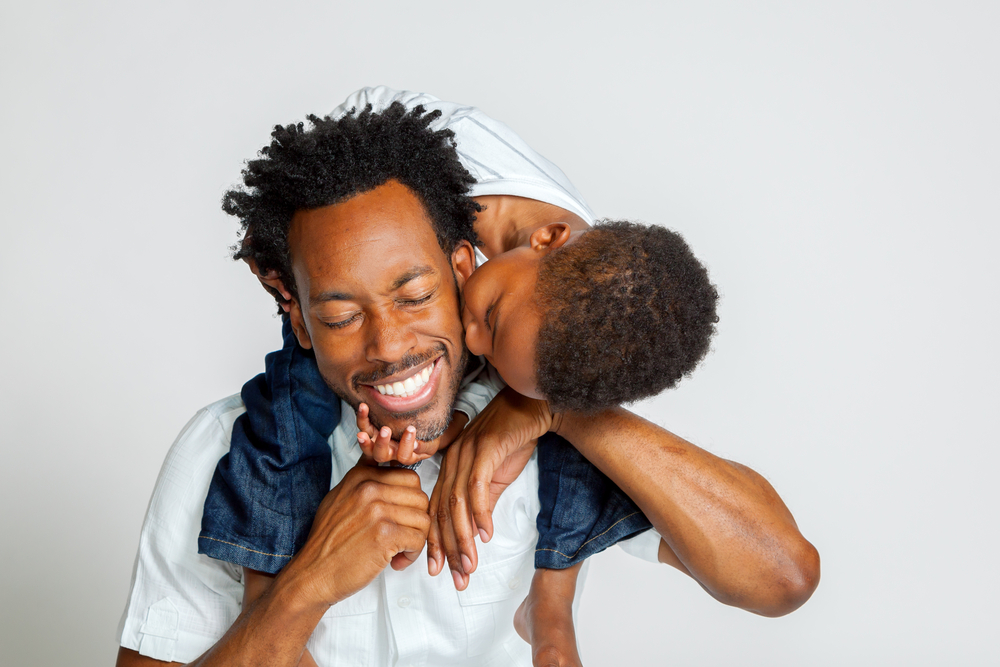
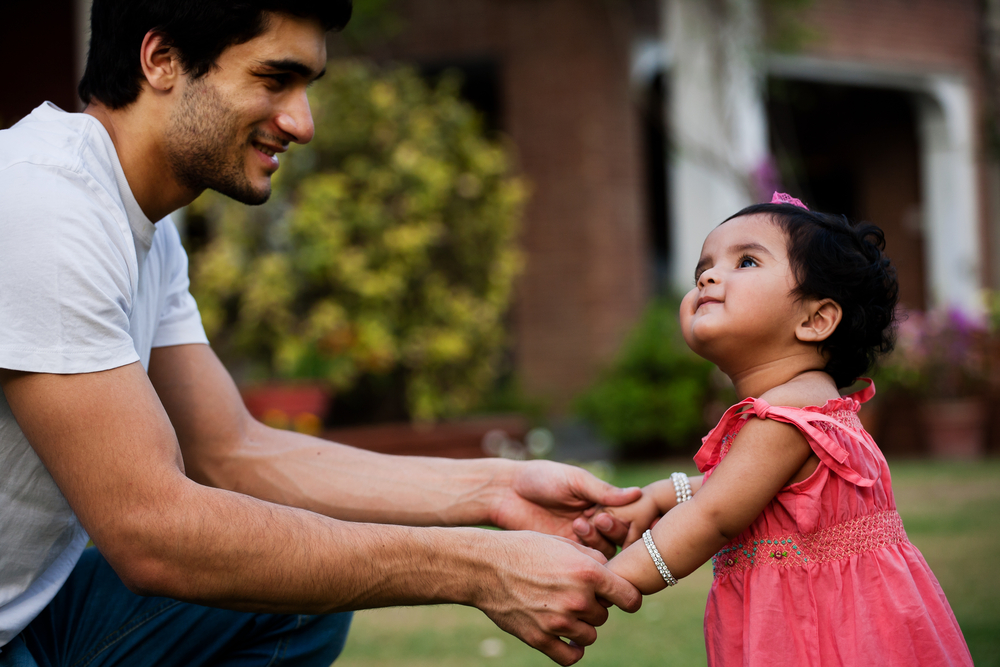
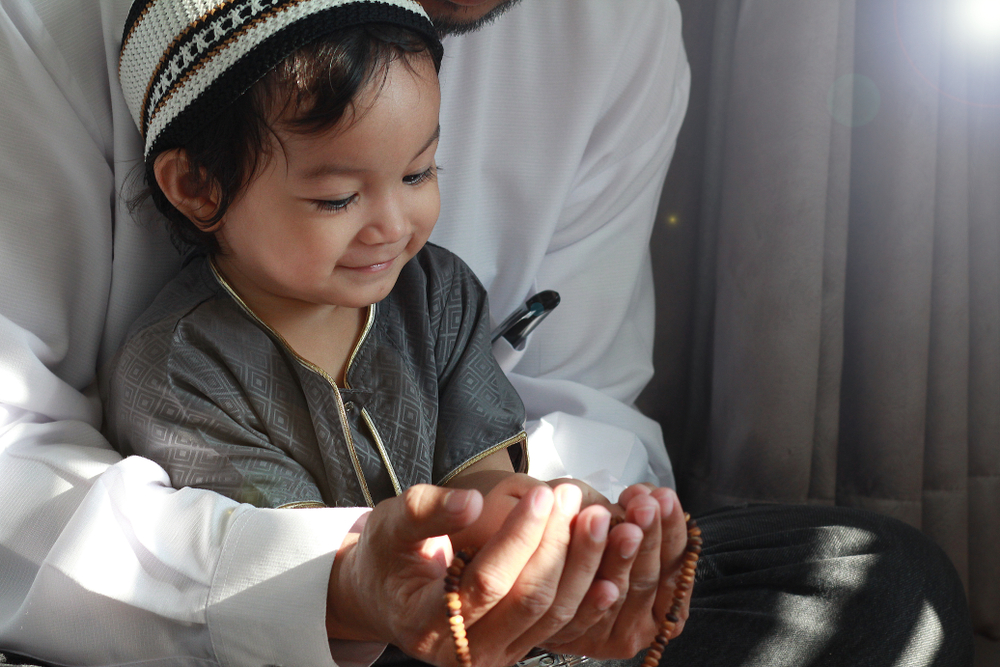
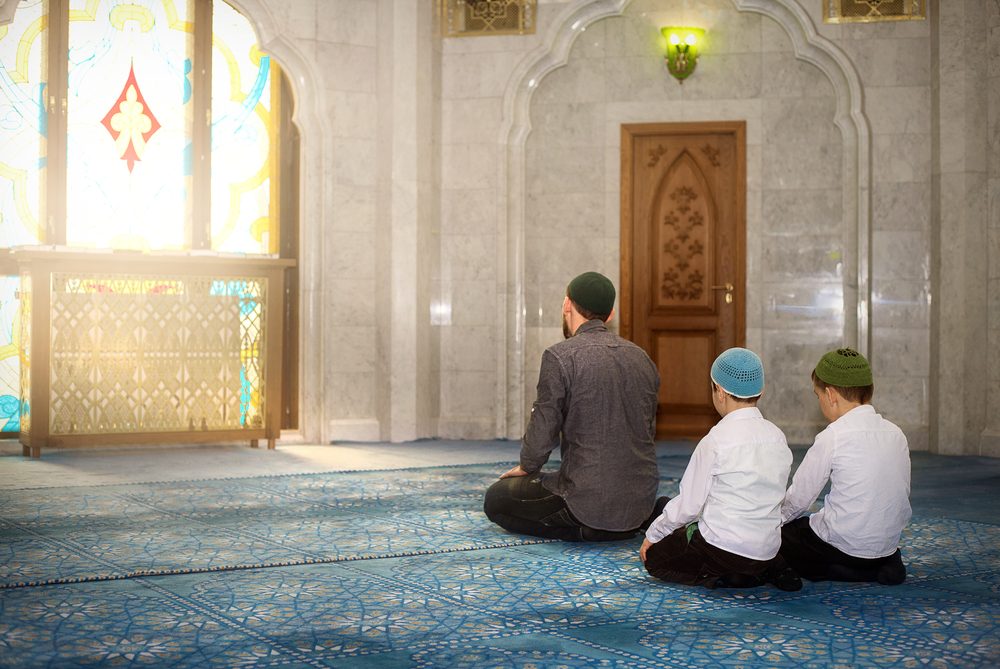
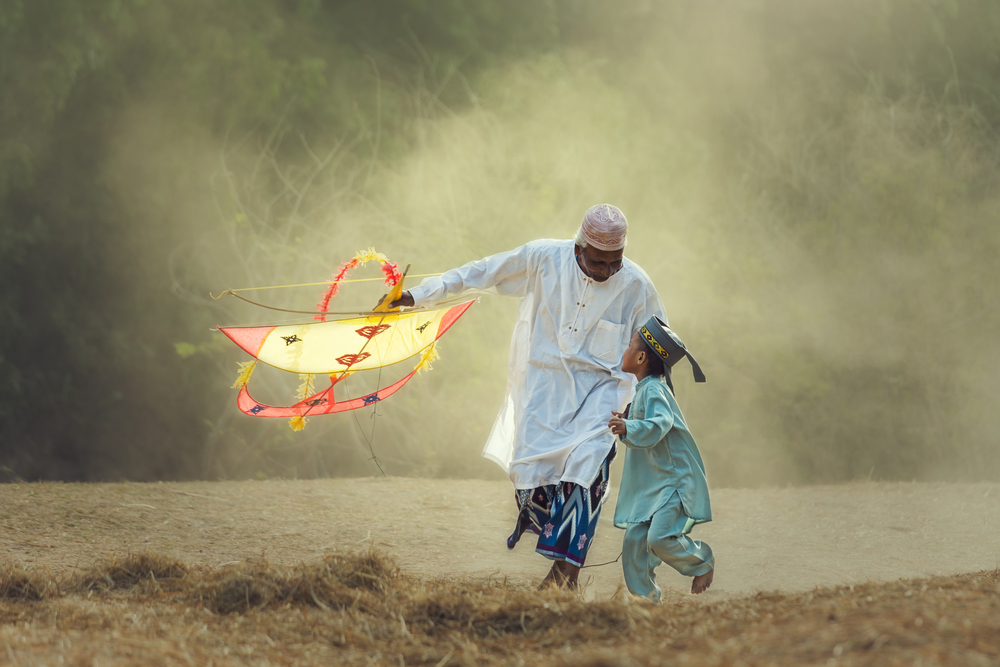
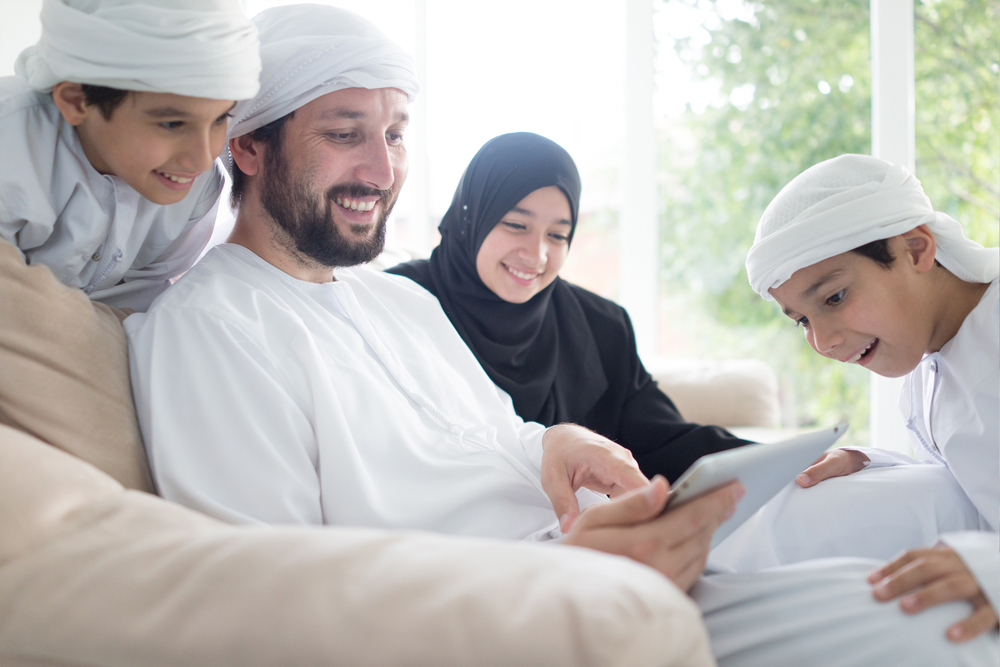












Smee
March 11, 2018 at 7:32 AM
As you asked for feedback I would like to say the following:
1) the intended point of the article is a much needed talking point
2) however reading it as a single mother, whose ex husband is still present in the child’s life, made for uncomfortable reading. As the non present parent my children’s father is not the financial provider nor the figure of authority.
3) i take particular offence to this statement, “First, many men stipulate appreciation for service, so ingratitude yielded interruption of service.”
This is a ridiculous statement that panders to the notion of men and their fragile egos. The real reason Muslim men struggle being breadwinners is much more to do with heir upbringing. Boys are pampered more than their sisters, especially in household services, and they are not taught about their future responsibilities in the same way young girls are. So when it comes to the crunch we have a swathe of lazy and incompetent men who do not understand their role as providers, especially in the west.
Umm Ayoub
March 11, 2018 at 1:29 PM
Very nice paper. Thank you very much. May Allah reward you!
MAC
March 11, 2018 at 1:47 PM
I agree with Smee above. I come from a Pakistani Muslim household in Pakistan. So this is a pretty much Desi feedback. I’ll tell the feedback through my father’s story. So my father grew up in a household with 2 sons and 6 daughters. My father is the eldest son. My paternal grandfather took up the role of nurturer and breadwinner since my grandmother divorced and left the kids in his care and remarried. I don’t know what happened in between since we’re not allowed to ask questions in my family. But here’s the deal. I got an alcoholic, deadbeat father who only provided food. My mother who’s a doctor worked 12-14 hours a day provided clothes, toys, school fees, vacations as well as nurtured us 3 girls. My father would work 6 hours a day, crash on the bed with his alcohol until next morning. In between he physically and verbally abused my mother almost on a daily basis. So I’m not sure what kind of ingratitude made him interrupt his financial service to us. We still were supposed to obey, serve, listen, cook, clean for him. We did all of that. My father is a Baby boomer. So is my mom. I don’t downplay the role of a father but there is more to selfish dads than ungrateful wives.
2) I also hate the word authority and like the word “responsibility” instead. Since we were obeying my dad’s authority without the benefits of all of it. “Don’t you dare tell me to be patient”
3) My grandfather used to help around the house too, with house chores, and all. The only thing I know is that my grandmother preferred her sons over her daughters and in my father’s home his sisters did ALL the chores for him. When my grandmother left, my father’s 3 elder sister’s even earned and contributed to the family’s earnings all the while my father was unstably hopping around jobs and sometimes for years remain unemployed relying on his sister’s money.
4) my father, and his 6 sisters have been abusive to us; my mother and us 3 sisters.
5) Also, my father has had plenty of girlfriends in between, he would often gamble, and give away money to his friends.
Can you explain why my father turned out the way he did? He had a great dad, why couldn’t he be one? Through our ingratitude? Or was his childhood lacking something?
Usman
March 11, 2018 at 8:43 PM
Thank you for sharing your personal story. It sounds like your father’s childhood was lacking his mother. Being the first born child, your father may have taken his mother’s abandonment extra hard. Most alcoholics and drug addicts suffer from PTSD especially from childhood. Alcohol and drugs are a gateway to another world away from reality. The question to ask is what is so painful in this reality to wish escape through mind altering.
farhan shaikh
April 25, 2020 at 12:08 AM
sister why didnt your mom just ask for divorce?
she was doctor?? right.
I am father of 2 daughter alhumdiallah, my wife does know how to raise kids. because her parents left her at her aunts house long periods of time. so she didnt really experience good upbring.
I educate my daughters. I do their luandry, buy clothes and spend time with my daughters.. tak them shoping..
now is fair to blame all mothers because my wife cant be good mom because of her backaround upbring?
Azim
March 11, 2018 at 4:52 PM
Father Plays a remarkable role in his children’s lives, so we should never limit their rights. Our society will grow stronger and more united if we will protect those rights. If you are a father who wants to improve his relationship with his children then I recommend you to read “How to be a good divorced dad” written by Jeffery Leving, this book is great source of information for dads.
Sayeeda Shireen
March 12, 2018 at 1:02 AM
Excellent and highly articulate! Political correctness has meant that we get all wishy washy when we talk of fathers. Masha Allah! May we all take heed. And may Allah guide us all. Ameen.
Fida
March 12, 2018 at 10:41 AM
I am glad someone raised the issue of late marriages. All this culture that promotes men delaying marriage uptil 27, 30, 35 is hurting women who belong to their age group. It nice to have a spouse who’s similar to you in age. Women are suffering from men delaying marriages and we see more single Muslim women wanting to get married to single Muslim men their age but the men aren’t ready. Please raise this issue more and more. This one single issue could destroy the Ummah.
juwayriyah
March 12, 2018 at 2:00 PM
Hmmm. Very interesting to read. Just wanted to share a few scattered thoughts.
I am on a personal journey myself to understand what is the ideal muslim woman and what is the ideal muslim man. Given that I adhere to Islam, it should have been a rather simple endeavour of reading the biography of our beloved nabi(saw) and the women from our glorious past and those mentioned by Allah in his book. Turns out the time in which we live in has made things so complicated that carving an identity for yourself via the lens of Islam while at the same time not being beguiled by the postmodern nonsense that is being shoved down our throats, all the while recognising that times have changed and a degree of adaptation has become necessary.
The question becomes then where is the line drawn? In a eutopia I would have just said that Islam draws the line for us, period. No more discussion. And I wish it were that simple. The factors involved in shaping what you become are many and complex, understanding the interplay between them is no meagre feat.
Coming from a typical Pakistani family, I think on paper I had most of the things you mentioned that are essential for a good upbringing. Traditional family roles were in place, father worked and mother was at home with the children. Father laid down the law, kept us in line, was the best provider I could have ever asked for. Not for a second did he neglect his role as breadwinner, not just for his wife and kids but his parents and unmarried sisters. Albeit being desi he did lack that gentle affection, but he certainly had authority and I remember fearing him as a child. As an adult I have come to understand that he loves his children even if not expressed verbally or physically, but just by being the chief financier. He missed a trick with the affection and one might say well if he ticked all the other boxes, he can get away with that. After all a mother is the primary source of love and affection. But I can say today that despite technically fulfilling all the responsibility in the capacity of being head of the family, and I pray Allah allows him to enter jannah because of that, his authority and adeptness only ever highlighted my mothers docile and complying demeanour. I can’t say she is a strong woman but again she technically ticks all the boxes: stayed at home with us, allowed my dad to be the king of the house, respected his authority and did all that was expected from a mother. May Allah reward her.
Yet today, I regret to say that when I make duaa for my parents, I feel a sense of formality, a sense of obligation as i feel indebted to their service. And you might say well what is wrong with that? It has seemed more like a transaction instead of meaningful relationships with my parents. I wish I could make duaa with true feeling and utter love. Yet I do so as a duty. Parenthood is not a check list, it is not a transaction, it is a filial bond from the divine himself, a bond that defies reason even. So you could have the prototypical father figure being head of the house and the submissive wife with not much influence, technically doing all that is required and yet end up with children who would rather confide in their friends, for whom you as a parent would be the last person they could share their thoughts and problems with. Being dutiful and obedient to your parents out of obligation is a far cry from that that is borne out of love.
Bring into this all the confusion that society adds to the mix and you end up with a young man or young woman wondering what sort of family they would want, if they want one in the first place. Especially if they were jot raised up with religion.
It is then when I realise the wisdom of the prophet(saw) when he told us to express and declare our love to one another. Yes fathers should provide and mothers should nurture but the only way each can succeed in their role truly if they do what they must according to the teachings of Islam. And lots of open expression of love. Kids can have your money and even your time, and still feel neglected.
Rafia
March 16, 2018 at 1:11 PM
As salaamualaikum sister I enjoyed reading your comment. Alhamdulillah it’s a good insight into parenting. May Allah Grant our parents His Mercy and enable us to be good parents, companions, role models, confidants to our kids
UmmZainab
March 13, 2018 at 9:21 PM
How important is the presence of a rather and till what extent should a woman compromise m stay in a self destructivemarriage so kids have a faTher ?
So picture this..Got married at 17..by 20 had three kids. Was buried in a big family with loads of work. Had no time to breathe. After third child found out about husbands philandering ways…Was suffocated…crying begging pleading ..always thinking of divorce or at time of suicide but ended up staying in marriage for the sake of kids..So kids have a dad…..Ahhh fast Foward to present day ..have five kids now. Oldest 22 youngest 3..last yr husband moved out to live with his white gf..a gf who is younger than his daughter.
The sacrifice I made so kids would have a faTher ….have all become depressed embarrassed n didn’t reach their full potential due to father’s philandering way. How I so wish I should have walked away back then n.my kids wouldn’t have to go through this agony.
Rafia
March 16, 2018 at 1:36 PM
Absolutely true. Patience is different from oppression. If we stay for the greater good, then there are times we need to walk away for the greater good of ourselves and the kids. We need to have patience but that doesn’t imply being oppressed and accepting it. A single parent home which provides a safe environment for the kids is more important than a broken, fractured home which can leave them scarred for life.
A father is an important figure, but when he ceases to be that, shirks his responsibility as a dad, husband etc and just follows his nafs, and shows no inclination to change his ways, it’s time to leave.
I had a husband of ten years, who fell into evil ways and neglected me and the kids, abandoned us for months at a stretch to seek the desires of his nafs. When I realized he was unwilling to change his ways of cheating ppl thru Ponzi schemes, womanising and God alone knows what else, I decided it was time to pack up.
Alhamdulillah the kids were still young and didn’t get affected too much. We are now a happy and stable family albeit a single parent one.
Last I heard from his family, the ex was also involved in human trafficking. Hence I decided not to let the father have any role in the children’s lives, though I had given him access to the kids previously.
Such is the state of the men, the qawwam in our society, though not all, most at least. What options do we have other than single parenting and hoping that Allah will guide our kids aright and make the journey easy for us. The journey already made difficult by not just the uphill task of raising kids alone but having to answer society on why we choose to be single mothers.
Ahmed
March 14, 2018 at 6:07 PM
Sister Juwayriyah,
I have been on a journey myself, and was surprised to realize that I could relate to most of what you wrote. My biggest consolation has been what someone once wrote to me: “Our parents did their best with what they knew.”
Emotional intelligence and expressing love in a diversity of ways seems to have gotten lost over the generations (speaking only for the general desi experience). Maybe the struggles of making ends meet pushes families and entire communities to always be in “survival” mode for the majority of their life. For those of us who have been favored with the comforts of a healthy regular income and concerns beyond mere survival, we have an opportunity to learn and be more emotionally adept in our parenting of our own kids.
I love my parents, yet coming to terms with their shortcomings in parenting me has been quite challenging. How they were with me emotionally has affected me in who I am today, both in the good and the not so good. My dad provided, and my mom cared for us. They fit the mold, yet something was lacking.
I wonder if this is just part of life, where you mature enough to realize how things could have been done differently had they expressed more positive emotions and love. It is our job now to not repeat the same mistakes (we will have our own share of mistakes) they made, while still trying to overcome our own emotional wounds left from emotional neglect.
Juwayriyah
March 14, 2018 at 10:37 PM
Br Ahmed
Saddened to hear that you could relate but can’t say I am too surprised. They always do what they *think* is good for us, it is just rather unfortunate that it does not often turn out to be what *is* good for us. My consolation is believing in the qadr of Allah and that every experience was by design, my childhood and my relationship with my parents, all of it was to teach me something, it will be good for me, even if I can’t see it.
Going down the rabbit hole of ‘what if’ does not do us good yet I cannot help but feel that if things had transpired differently, I might have wanted a family of my own, but interactions(or lack there of) can be profound and they leave a mark on you that is very hard to remove, sometimes even clouding your better judgment. So your idea of ‘family’ will always be either tainted or beautified by what your family life was like.
But for me, the realisation that your parents, despite being good and decent people, and doing their best can have such a lasting and deep affect on how you view the world and yourself, makes me shudder at the thought of being responsible for raising a child and failing despite my good intentions. Indeed parenthood is not a folly matter and perhaps the great responsibility of it is why Islam holds parents in such high esteem. The accountability of it is also great. We tend to forget that aspect.
May Allah always guide us and allow us to do right by him and by those under our charge.
Ahmed
March 15, 2018 at 5:59 PM
Sister Juwayriyah,
Just as the responsibility is great, the opportunity in parenting our own children is amazing as well. Just as anything in life, good intentions can never be a substitute for sound knowledge. Many people intend well in religious matters, and yet, can fall into innovations that are harmful to them and their religion due to the lack of sound knowledge.
Similarly, parenting can only go so far with good intentions. Sound knowledge can help cure some of these issues, and Allah doesn’t expect from us perfection. Just because our parents fell short in certain areas, doesn’t necessarily mean we will fall short too.
We have to believe in ourselves and our capacity for change, just like Prophet Muhammad (SAWS) believed in the companions around him. We place our trust and reliance on Allah that he will guide us, teach us, be loving to us, and forgive us when we fall short. We have to place our trust in Him that he will enable us to do a better job.
If each generation can do a better job in parenting than the previous, eventually the net result will be great.
Our parents are people, and we are people. Allah favors whom He wills, so don’t despair of being a parent (or parent figure i.e. taking in an orphan) simply because of the responsibility that it comes with. Trust Allah and trust in your own capacity to be guided and healed by Him.
Juwayriyah
March 15, 2018 at 9:58 PM
JazakAllah khair br Ahmed. Spoken words of wisdom Alhamdulilah :)
Serien
March 17, 2018 at 10:33 AM
This article has a focus on advice for fathers to show responsibility and love to their kids. There is a lot of good information about parenting and the importance of fathers. The author is knowledgeable about the topic and societal trends.
I request you to write about the children who are already affected by neglect from their parents, specifically fathers. How can we as a society care for them. Are we doing enough for them? Do Masjids provide any accommodation for boys going to prayer with mothers like a mentor or guide who they can turn to if they are not accompanied by a father or relative.
While I agree with the entire article, I wonder about its purpose. What will it take for a expect a man who neglects or abandons his children to return to a dignified place of being a responsible provider.
Spirituality
March 18, 2018 at 2:49 PM
Sister Juwayriyah, Brother Ahmed, I am going through a similar journey. I have found Dr. Jonice’s Webb’s work on Childhood Emotional Neglect (CEN) incredibly helpful. The scary thing is that Dr. Webb makes it clear that is a cross-generational phenomenon. This means that unless we work on overcoming our own CEN, its almost 100% guaranteed that we will pass it on to our children. But, as Br. Ahmed says, we have to be positive. If we work through our CEN and learn true emotional intelligence, we can, Insha Allah, raise our children better than we were raised.
I also console myself in noting that despite my problems and issues, I am not addicted to drugs, I did not become a pregnant teenager, and I am not on the street. Alhamdhulillah.
Spirituality
March 18, 2018 at 3:19 PM
As Salamu Alaikum,
I’d just like to comment regarding the authority of the husband, Its clear that Allah has given the husband authority over the family, including the wife. But, as the article says, this does not mean complete submission and docility. Looking at the wives of the Prophet (s), its clear they were strong, vibrant women, who occasionally even took leadership roles in their marriage with the Prophet (s).
Khadija (RA) was the one who proposed to the Prophet (s). She also was the one who comforted him and led him to her cousin, Waraqah bin Naufal, after he received the first revelation and was terrified and confused.
Umm Salama (RA) counseled the Prophet (s) on how to deal with the Sahabah during the difficult time after the immediate aftermath of the Treaty of Hudaybiyyah.
Aisha (RA) was of course very strong, vibrant, and full of questions.
The Mothers of the Believers do not strike me as the model ‘desi woman’; quiet, submissive, docile – someone who completely submerges her personality to that of her husband.
Yet, there is no question that the Prophet (s) was the leader of his family. Rather than the idealized desi husband and wife relationship, the relationship between the Prophet (s) and his wives seemed closer to two high level executives; one is the boss of the other, but realizes that he absolutely needs his co-worker to realize the organization’s aims and goals. Thus, the relationship is one of mutual respect and cooperation much more than one dishing out orders and the other blindly following them.
And Allah knows best.
Ahmed
March 20, 2018 at 3:54 PM
Sister “Spirituality,”
I liked your analogy with the “two high level executives” and “Thus, the relationship is one of mutual respect and cooperation much more than one dishing out orders and the other blindly following them.”
In my opinion, if we look at the cultural differences when it comes to leadership between Eastern cultures and Western cultures, Eastern cultures generally regard leadership as a top-down type of role where there is emphasis on the leader’s authority. In Western cultures, the leader is regarded as more of a one among the team. I like this illustration that one artist made: https://qz.com/567479/the-cultural-differences-between-east-and-west-according-to-one-artist/
It seems that some of the same leadership attitudes affect the way husband/fatherly leadership is perceived in different cultures.
Just some more thoughts about this discussion.
Ahmed
March 20, 2018 at 4:17 PM
Just bought Running on Empty by Dr. Webb. Jazakallah khair for the recommendation.
Fatima
May 4, 2018 at 8:29 PM
MashAllah beautiful article..very well written
Md Nayeem
May 9, 2018 at 1:45 PM
سُبْحَانَ اللّهِ
Actually it is the beauty of Allah’s creation, which is out of human thought. Even we don’t know or never think about the beautiful pure connection between parents and their children…
farhan shaikh
April 24, 2020 at 11:55 PM
Aslaam akloum
brother , I understand thinking behind this.
but biggest problem is Muslim familes are not producing quality son to be raised as leaders.
I was raised in americs No sister..my parents spoil me and my brothers withiut teaching usblife lessons.. including my father
so we all struggle in our marriafes and other thingd but alhumdiallah Allah made us stronger and nade us realize what we did was wrong to correct.
We must train boys to become ” respoinsable man”.